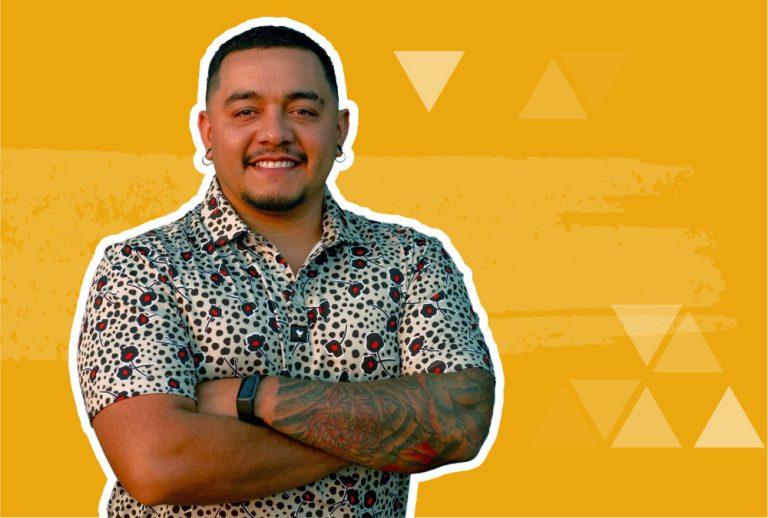How many iPhones do you need to store a petabyte of data? Nearly 4,000, Gabriel Flores estimates.
For the average person, a petabyte is 1000 terabytes. That's the amount of data an autonomous vehicle's edge server would need to collect and transmit via cloud storage on a consistent basis — an extremely expensive, high-tech process, and critical to every aspect of a safe, functioning autonomous vehicle.
Complex technical challenges like these are where Flores hits his stride. He is the director of enterprise engineering at Latitude AI, a Ford company developing hands-free driving technology. His team builds, manages and services the interconnected servers where vehicles dump data every day.
Working on the front lines of a huge, highly disruptive force in technology during an inflection point is his happy place. It's a new frontier indeed, with research suggesting that 12 percent of new passenger cars will be sold with self-driving technologies by 2030 — and that number will hit even harder as they are adopted.
“Being part of something new is where the fun is, and it's where the excitement and sense of purpose are for me. The companies I worked for were doing something new, something we hadn't thought of, and they changed the game.
“I've always thought cars were cool, but it's nice to be part of the potential good that will come from this technology, from a road safety standpoint and for convenience,” Flores said. “I'm not saying people won't get behind the wheel anymore, but it will help reduce the number of accidents.”
Initially trained and self-directed, Flores has now spent over a decade as an engineer, building efficient server networks around the world for giants like LinkedIn and Airbnb, setting up their offices in Amsterdam, London, Paris, São Paulo, Singapore, Stockholm, and throughout the US.
After graduating, he found work as a data analyst for Cisco, testing servers. The role was repetitive and process-oriented, and Flores quickly saw opportunities to create new efficiencies that saved time and added value to both the team and the company. This created room for him to grow.
“I learned business acumen by doing all my projects and case studies at Chico State,” he said. “This made it really easy to see my work from different perspectives.”
The leap from validating servers to building them himself and leading a team of engineers wasn't as much as he initially envisioned: “When I first joined this field, I had a passion for computing and building things. I thought I was going to be an architect when I was younger. I am what I am.” Today he basically acts as an architect, but for servers.
His passion and curiosity have led to new opportunities, always at the intersection of technology and culture.
“I like the challenge,” Flores said. “Being part of something new is where the fun is, and it's where the excitement and sense of purpose are for me. The companies I worked for were doing something new, something we hadn't thought of, and they changed the game.
Read more from the Change Maker series.
Leanne Thompson (International Relations, German, '91): CEO of Aquaway
Pratik Mehta (MS, Computer Science, '11): Head of AI at CloudMedx
Director of Communications Clayton Truscott leads the storytelling and content development efforts for University Communications.


